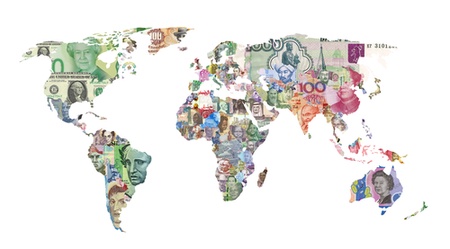The SNP’s recent proposals for an independent Scottish currency mark a significant change in approach to that adopted in the last independence referendum. Arguably, the lack of clarity on the currency weakened the previous campaign. This time the policy is clear, but still challenging and difficult.
Given the time and cost of establishing a new currency, it is easy to see why using an existing currency was an attractive option the last time round. However, using the UK pound or the Euro essentially hands over control of monetary policy to another country, which hardly sits comfortably with the notion of independence. For example, if England were to experience a boost to growth following Brexit, the Bank of England may have to raise interest rates to contain inflationary pressure. This might be exactly what a struggling Scottish economy does not need! Similarly, ECB policy would also reflect the needs of the Eurozone as a whole rather than the particular needs of a small member state.
The alternative is to have a Scottish currency – which is a more coherent stance. There are, however, critical issues with issuing a new currency. If this new currency is allowed to freely float against other currencies, then the relatively low productivity of the Scottish economy would imply that this currency would lose value. Such a weak currency would improve prospects for Scottish exporters, but make our imported goods more expensive. This would increase inflation and push up the cost of living for Scottish consumers.
On the other hand, any attempts to manage the currency would require substantial reserves to ensure credibility and avoid the attention of speculators. The fiscal health of the nation, for example, indicated by the primary deficit or the level of accumulated public debt, would have a key role to play in the market assessment of risk. With a new currency, if the Scottish government was to peg the value to another currency, then it would need to have reserves to maintain that peg, and these would have to be sufficiently credible to ward off speculators. This further underlines the need for strong fiscal discipline. The decline in fiscal revenues over recent years do not paint a rosy fiscal outlook in this respect. A tax bombshell may be the only way to reconcile the need to constrain debt given the SNP’s ambitious spending plans. With an independent Scottish currency and an interest rate set by an independent central bank, any interest differential could lead to capital flows. For example, a cut in the Scottish interest rate could potentially lead to capital outflow. Capital controls could mitigate this to some extent, but though these have been discussed (those on the left of the Labour party for example), they sit at odds with the global financial market that underpins the Scottish financial sector.
Transaction costs would also be a significant challenge. Scotland’s main trading partner remains the rest of the UK (around five times the value of international trade). In a country that has supported close ties to the EU and its single market ostensibly to minimise impediments to trade, it is ironic that this currency proposal could add further barriers to trade.
In short, the SNP’s currency proposals are now much clearer, but still pose huge challenges in terms of coherency with the notion of independence, and in terms of the difficulties of implementation.
Professor David McCausland was appointed as Director of Undergraduate Studies of the University of Aberdeen Business School from July 2017. He served as Head of Economics from January 2014 to December 2017. He is a member of the University's Evidence Based Enhancement Steering Group and has a strong profile in research leadership, teaching innovation and administrative expertise. His principal research interests are in the areas of open economy macroeconomic modelling, labour economics and the economics of health and wellbeing. He has been involved in three large EU funded projects in which Aberdeen was the coordinating partner, and has published widely in internationally respected peer-reviewed journals. He is a Senior Fellow of the HEA, and an Associate of the Economics Network.


